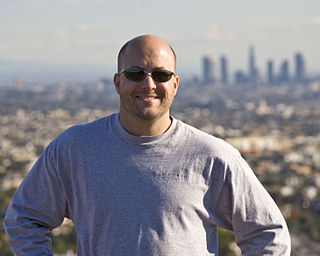A Quote by Marshall Curry
I took a leave of absence from the internet company where I was working and bought a camera and a copy of Final Cut Pro editing software and made my first feature film, "Street Fight." It followed a crazy, racially charged mayoral election in Newark, NJ in which a young guy named Cory Booker was taking on the political machine of that city. It went on to be nominated for an Oscar and Emmy and was a real example of DIY film-making.
Quote Topics
Absence
Bought
Camera
Charged
City
Company
Copy
Crazy
Cut
Diy
Editing
Editing Software
Election
Emmy
Example
Feature
Feature Film
Fight
Film
Final
First
Followed
Guy
Internet
Leave
Machine
Made
Making
Named
Newark
Nominated
Oscar
Political
Pro
Real
Software
Street
Taking
Took
Which
Working
Young
Young Guy
Related Quotes
I re-mastered 'The Conversation' a few years ago for DVD. 'The Conversation' was the first film I edited on a flatbed machine - a KEM editing machine. I've been using Final Cut or the AVID for 12 years now, so I was interested in looking at this film and seeing if I could tell if it had been edited the old way. Truth be told, I couldn't.
Most people look at a feature film and say, "It's just a movie." For me there is no border or wall between fiction and documentary filmmaking. In documentaries, you have to deal with real people and their real feelings - you are working with real laughter, happiness, sadness. To try to reflect the reality is not the same as reality itself. That's why I think that making a good documentary is much harder than making a good feature film.
The core plot of 'Mercury' is so gripping that when I thought of making it as a silent film, it only made it more interesting. Once I finished writing the first draft, making a silent film that's both thrilling and engaging seemed possible. When the film team read the final script, they felt the same.
Over time it just got more and more intense as far as the trust factor. For example, when we started editing the film [Dream of Life], I thought, man, I need to make sense of all the footage I have; I need to ground the film. And one day I was hanging out in Patti's [Smith] bedroom, which is where Patti works, and in the corner of her bedroom is this great chair, and that's when she began showing her personal things to me. The camera was there, and we realized that we were really making the movie and making sense of the footage in the movie.
































